Unlocking the Mysteries of Mexico and Central America: A Comprehensive Guide to Blank Maps
Related Articles: Unlocking the Mysteries of Mexico and Central America: A Comprehensive Guide to Blank Maps
Introduction
With great pleasure, we will explore the intriguing topic related to Unlocking the Mysteries of Mexico and Central America: A Comprehensive Guide to Blank Maps. Let’s weave interesting information and offer fresh perspectives to the readers.
Table of Content
Unlocking the Mysteries of Mexico and Central America: A Comprehensive Guide to Blank Maps

Blank maps, often dismissed as simple outlines, are powerful tools for understanding geography, history, and culture. When applied to Mexico and Central America, these blank canvases unlock a wealth of knowledge, revealing the intricate tapestry of these vibrant regions. This guide delves into the significance of blank maps in exploring Mexico and Central America, offering insights into their diverse landscapes, rich histories, and cultural complexities.
The Power of Blank Maps: A Visual Exploration
A blank map of Mexico and Central America is more than just a collection of lines and borders. It is a blank canvas, ready to be filled with the stories of the region. By engaging with a blank map, individuals can:
- Visualize Geographic Relationships: The blank map allows for a visual exploration of the region’s physical features, including mountains, valleys, rivers, and coastlines. This understanding of the landforms provides a foundation for comprehending the distribution of natural resources, the influence of climate, and the historical patterns of human settlement.
- Uncover Historical Narratives: Blank maps become canvases for tracing the footsteps of civilizations, empires, and migrations. By plotting historical events, trade routes, and cultural influences, individuals can gain a deeper understanding of the region’s rich and complex history.
- Explore Cultural Diversity: Mexico and Central America are renowned for their cultural diversity. Blank maps can be used to illustrate the distribution of indigenous languages, traditions, and cultural practices, highlighting the region’s vibrant tapestry of ethnicities and heritages.
- Engage in Active Learning: Blank maps encourage active learning and critical thinking. By filling in the map with information, individuals are actively engaged in the process of acquiring knowledge and understanding. This fosters a deeper connection to the region and its intricacies.
Mexico and Central America: A Region of Contrasts
Mexico and Central America are a tapestry woven with diverse landscapes, rich history, and vibrant cultures. These regions offer a unique opportunity to explore the interplay of geographical, historical, and cultural factors that have shaped their identity.
The Landscape: From Mountains to Coastlines
Mexico and Central America are home to a diverse array of landscapes, ranging from towering mountain ranges to lush rainforests, from arid deserts to pristine coastlines. The Sierra Madre Occidental and Oriental in Mexico, the Cordillera de los Andes in Central America, and the volcanic chain stretching through both regions create a dramatic backdrop for human history and cultural development. The region’s diverse landscapes have influenced everything from agriculture and transportation to social organization and cultural traditions.
The History: A Tapestry of Civilizations
Mexico and Central America boast a rich and complex history, marked by the rise and fall of empires, the influence of European colonization, and the ongoing struggle for independence and self-determination. The region was home to advanced civilizations like the Maya, Aztec, and Inca, whose legacy is reflected in their architectural wonders, intricate art, and sophisticated social systems. The arrival of Europeans brought significant changes, leading to the introduction of new technologies, religions, and cultural practices, shaping the region’s identity and leaving an enduring mark on its social fabric.
The Culture: A Kaleidoscope of Traditions
Mexico and Central America are a vibrant mosaic of cultural traditions, languages, and artistic expressions. Indigenous cultures have endured and adapted, enriching the region’s cultural landscape with their unique traditions, languages, and artistic forms. The influence of Spanish colonization, the influx of African cultures during the colonial era, and the ongoing migration patterns have further contributed to the region’s cultural complexity. From traditional dances and music to vibrant festivals and religious practices, Mexico and Central America offer a rich tapestry of cultural experiences.
FAQs: Unraveling the Mysteries of Mexico and Central America
1. What are some of the most important geographic features to include on a blank map of Mexico and Central America?
- Major Mountain Ranges: Sierra Madre Occidental and Oriental in Mexico, Cordillera de los Andes in Central America, and the volcanic chain stretching through both regions.
- Major Rivers: Rio Grande, Rio Bravo del Norte, Usumacinta River, and the Panama Canal.
- Important Coastal Regions: Pacific Coast, Gulf Coast, Caribbean Coast.
- Major Lakes: Lake Chapala, Lake Atitlán, Lake Nicaragua.
- Key Deserts: Sonoran Desert, Chihuahuan Desert.
2. What historical events should be highlighted on a blank map of Mexico and Central America?
- Pre-Columbian Civilizations: Maya, Aztec, Inca, Olmec, Zapotec.
- Spanish Colonization: Arrival of European explorers, establishment of colonial settlements, and the impact on indigenous populations.
- Independence Movements: The struggle for independence from Spain in the early 19th century.
- 20th Century Conflicts: The Mexican Revolution, the Cold War, and the ongoing drug wars.
3. What cultural aspects should be included on a blank map of Mexico and Central America?
- Distribution of Indigenous Languages: Map the regions where different indigenous languages are spoken.
- Traditional Festivals and Celebrations: Highlight the location of important cultural festivals and celebrations.
- Artistic Expressions: Map the regions known for their unique artistic traditions, including music, dance, and visual art.
- Architectural Styles: Identify the different architectural styles prevalent in the region, including colonial, indigenous, and modern.
Tips for Using Blank Maps Effectively
- Choose the Right Scale: Select a map scale that is appropriate for the level of detail you want to include.
- Use Different Colors and Symbols: Employ different colors and symbols to distinguish between different geographic features, historical events, or cultural elements.
- Label Clearly and Concisely: Use clear and concise labels to identify the features, events, or cultural aspects you are highlighting.
- Add Notes and Explanations: Include notes and explanations to provide additional context and information.
- Research and Verify Information: Ensure the accuracy of the information you are adding to the map by consulting reliable sources.
Conclusion: Embracing the Power of Blank Maps
Blank maps are powerful tools for understanding the complex and fascinating world of Mexico and Central America. By engaging with these maps, individuals can gain a deeper understanding of the region’s diverse landscapes, rich history, and vibrant cultures. They can explore the interplay of geography, history, and culture, revealing the intricate tapestry of these captivating regions. Blank maps encourage active learning, critical thinking, and a deeper appreciation for the unique beauty and complexity of Mexico and Central America.
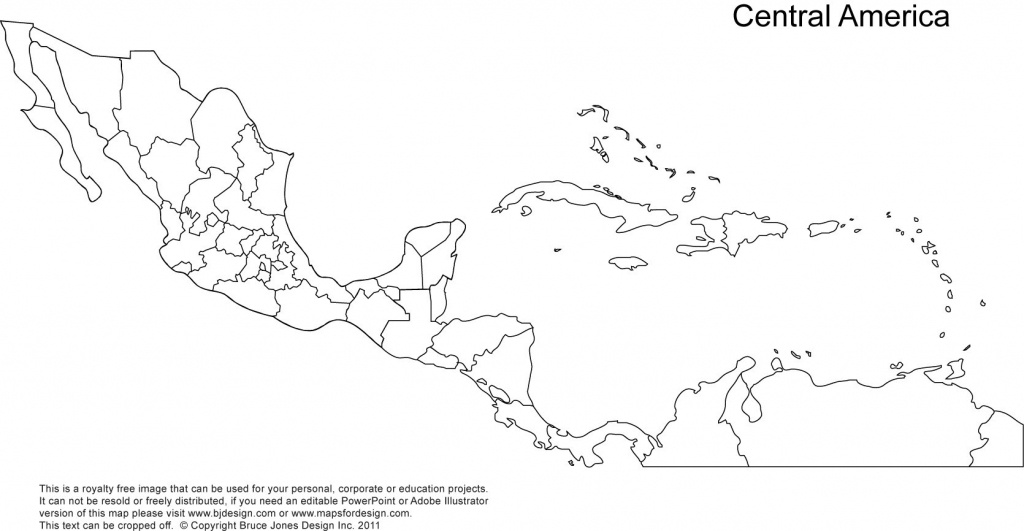
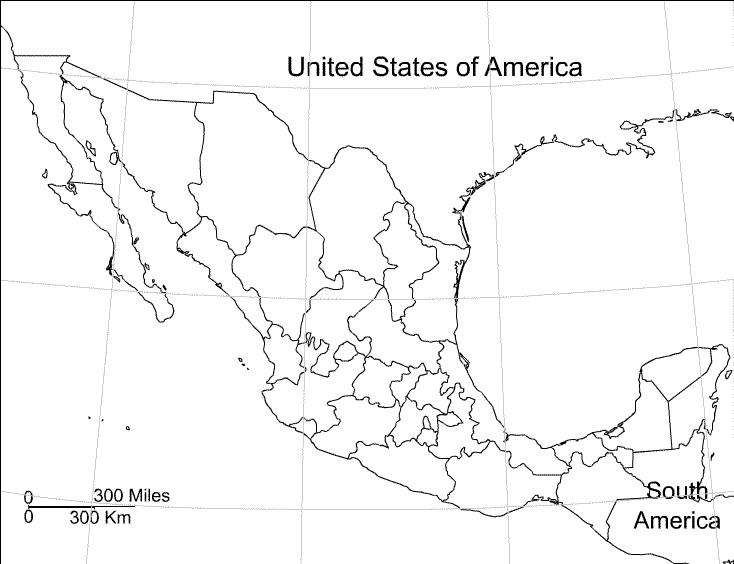

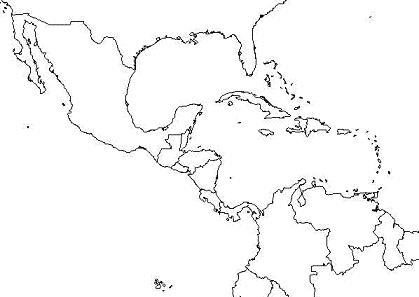
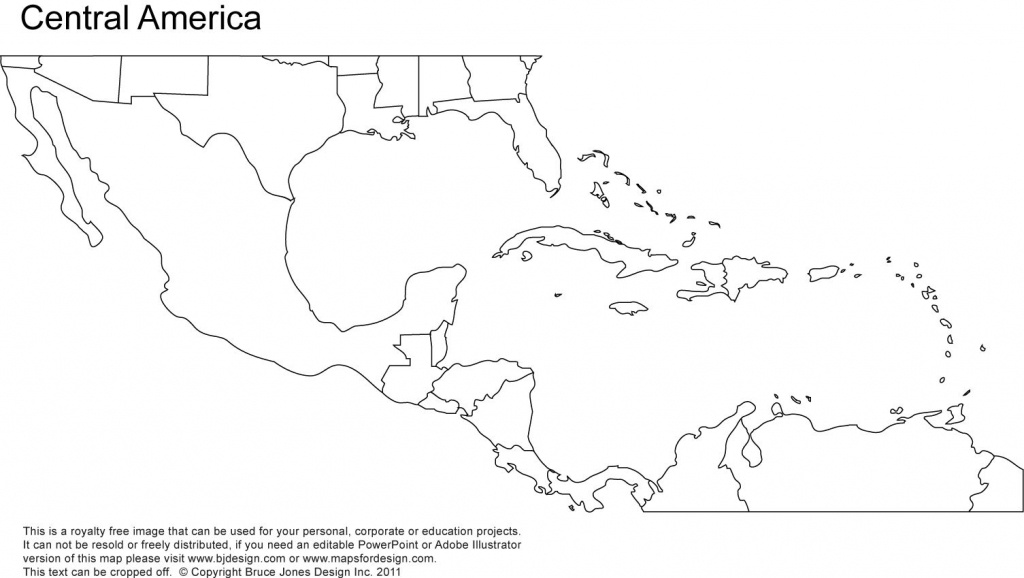


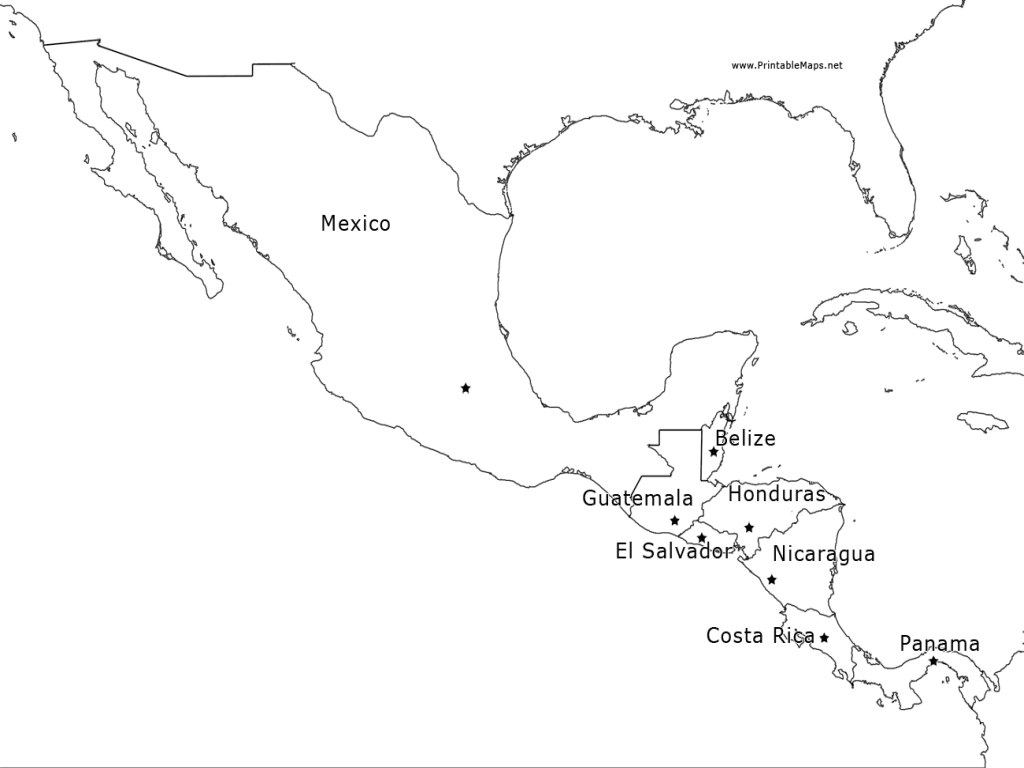
Closure
Thus, we hope this article has provided valuable insights into Unlocking the Mysteries of Mexico and Central America: A Comprehensive Guide to Blank Maps. We hope you find this article informative and beneficial. See you in our next article!